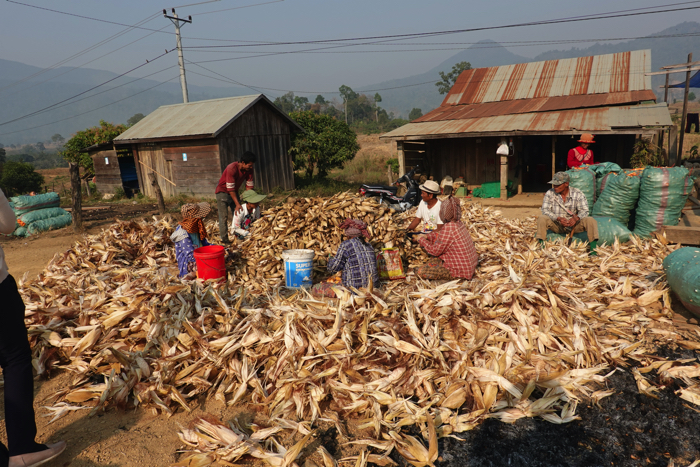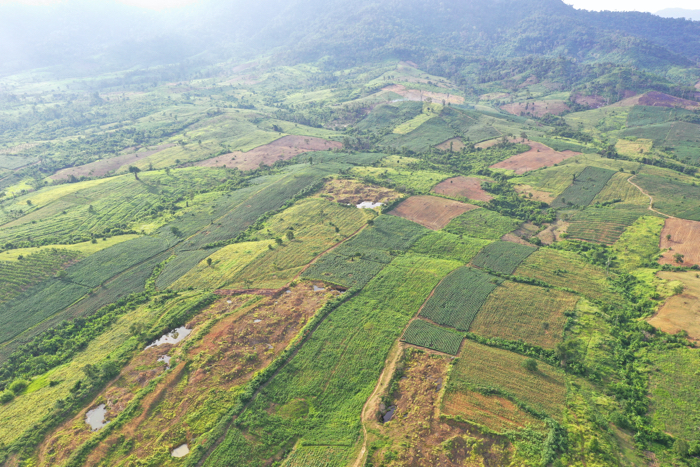- Project Leader : Hyakumura Kimihiko (Kyushu University, Institute of Tropical Agriculture)
- Collaborators : Yagura Kenjiro (Hannan University, Faculty of Economics)
- : Honma Koki (Tohoku University, Graduate School of Agricultural Science)
- : Hoshikawa Keisuke (Toyama Prefectural University, Faculty of Engineering)
- : Hori Mina (Kochi University,Research and Education Faculty, Multidisciplinary Science Cluster)
- : Kono Yasuyuki (Kyoto University, Center for Southeast Asian Studies)
- : Kobayashi Satoru (Kyoto University, Center for Southeast Asian Studies)
- : KC Krishana Bahadur (University of Guelph, Department of Geography)
- : Hor Sanara (Royal University of Agriculture, Faculty of Land management and Land administration)
Outline of Research
The objective of this study is to explore the meaning of transforming ecological resource use in rural villages of Southeast Asia through an interdisciplinary case study conducted in Pursat Province, Cambodia. Our research members consist of Japanese researchers and Krishana Bahadur from Canada, who have studied ecological resources and livelihoods in rural areas in Cambodia. We planned to invite Dr. Krishana to Kyoto in the second year of the project, but this was unfortunately cancelled due to COVID-19. Instead, we will hold an online meeting for discussions and developing research results. We will proceed with developing a commercial book publication and contributing an article to the “Journal of Southeast Asian Studies.”
Description
This study examines how livelihoods have been changed in rural areas of Southeast Asia through a case study in Pursat Province, Cambodia. The objectives of this study are to examine the relationship between human activities, the distribution of commodities, and economic trends in different agro-ecological environments.
Cambodia was heavily impacted by civil war until the early 1990s, and the changes in rural society caused by modernization and globalization have been “compressed” over a period of about two decades, mainly since the 2000s. Pursat Province is ecologically rich and diverse, with inland water, lowland, hill and mountainous areas, in which these condensed impacts can be seen in a panoramic view.
All research members have experience conducting field research in Pursat Province. This year, we will hold online workshops to facilitate exchange among members on the ecological resource uses and livelihood transformation in each agroecological environment.
The study will analyze ecological resource use in each area from the perspective of the ongoing transformation and comprehensively examine the dynamics and interactions among people, goods, and money that have driven this transformation. At the same time, it will take into account the overall picture of the ongoing development of the province’s diverse agroecological environments.
The historical use of ecological resources and their transformation in Pursat Province, which is the theme of this study, is a window to the overall transformation of rural Southeast Asia, and therefore the results of this study will contribute to a deeper understanding of Southeast Asian agricultural, forestry, and fishery communities in general.
 Peeling corn by farmers in Pursat Province |
 Mosaic agricultural landscape in Pursat Province |
